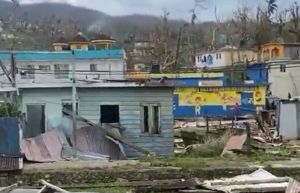Flood waters started receding in Indian Kashmir on Wednesday, giving rescue teams a chance to reach tens of thousands of villagers stranded by the heaviest rainfall in half a century, according to The Associated Press.
Floods and landslides triggered by days of rain in the disputed Himalayan region have killed at least 450 people in India and Pakistan and cut off more than one million people from basic services, the AP reported.
The swollen Jhelum river flooded large parts of the city of nearly one million people, snapping communication lines as desperate families were forced to huddle on rooftops of houses and mosques for survival, according to the AP.
The flooding began earlier this month in Kashmir, which is claimed by both India and Pakistan, the AP reported.
It caused landslides and submerged much of the main city of Srinagar on the Indian-administered side, according to the AP. The water is now rushing out of the mountains of the Himalayan region, affecting communities downstream and threatening people from their homes.
The Indian army has evacuated 76,000 people from their homes, mosques and government buildings, the AP reported. The death toll from the flooding in Jammu and Kashmir, the country's northernmost state, reached 220 by Wednesday.
The flooding is the first major humanitarian emergency under Prime Minister Narendra Modi, and also comes at a difficult time for Pakistani Prime Minister Nawaz Sharif, who has faced weeks of street protests aimed at forcing him out, according to the AP.
In Pakistan, at least 231 people were reported to have been killed by the floods across the country, including Pakistan's side of Kashmir, the AP reported.
South Asia experiences monsoon rains from June to September, which are vital for its agriculture, but the rains frequently turn to floods, devastating crops, destroying homes and sparking outbreaks of diseases like diarrhoea, according to the AP.
© 2025 HNGN, All rights reserved. Do not reproduce without permission.








